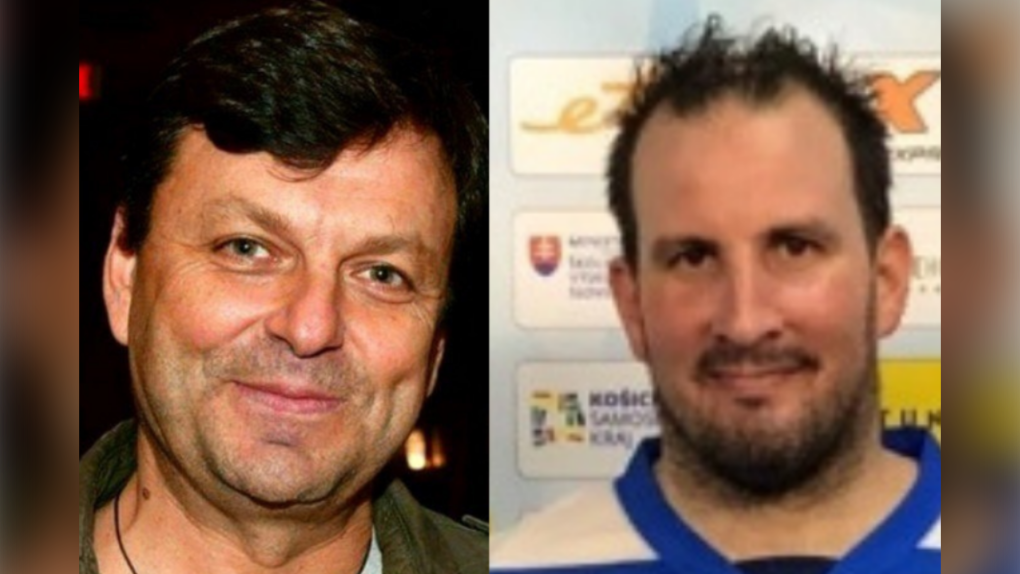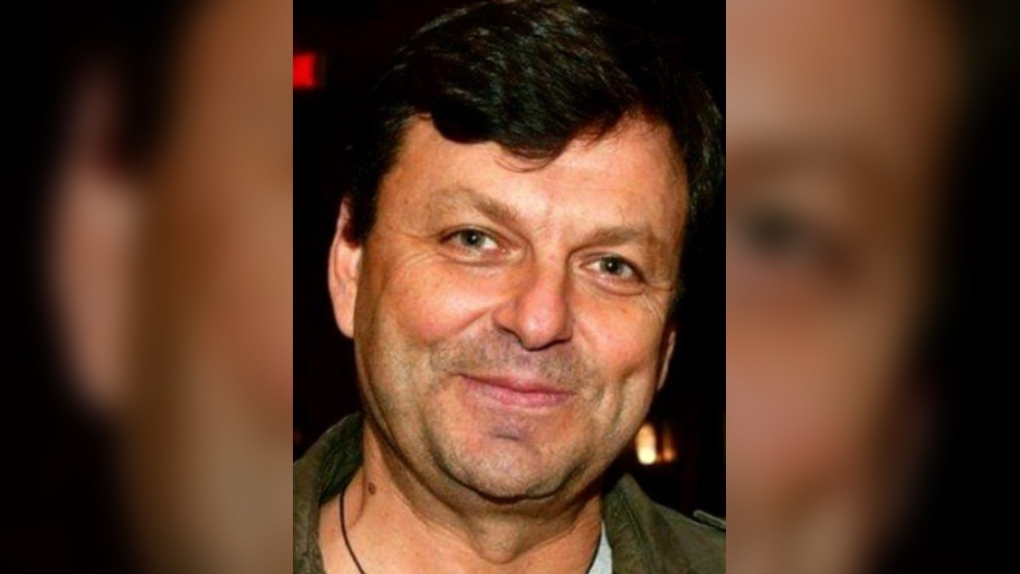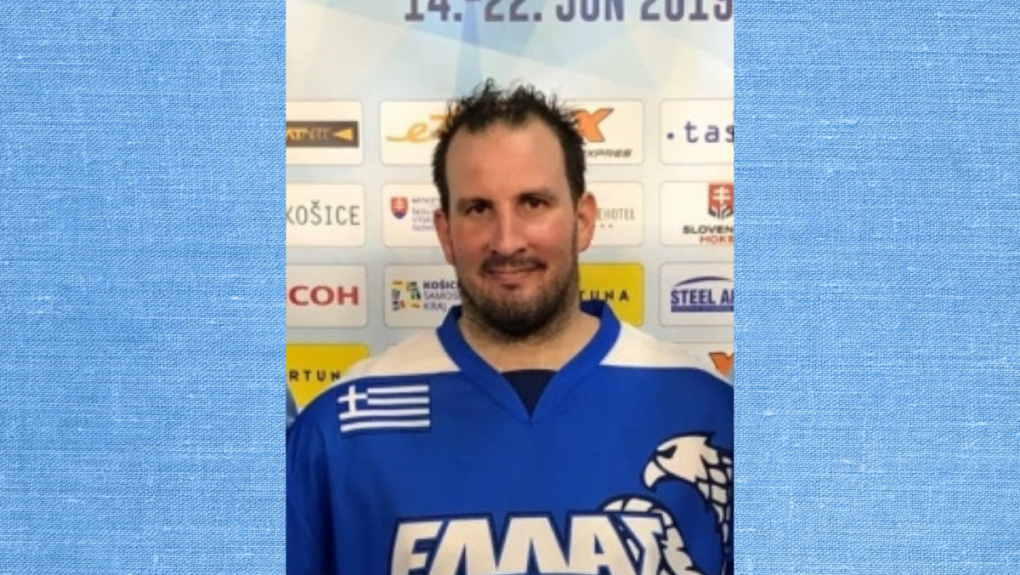After anti-vax sentiment seeps in, three die and a tight-knit community near Montreal is torn apart
 Nick (left) and Stefanos Govas were part of the same tight-knit community, and both died of COVID-19.
Nick (left) and Stefanos Govas were part of the same tight-knit community, and both died of COVID-19.
When COVID-19 killed a 39-year-old Laval athlete in early September, it sent a shock through his tight-knit Greek community.
Stefanos Govas was unvaccinated, and his girlfriend told media that his death had been avoidable—he’d been planning to get the shot soon anyway, she said.
But tragic as Govas’s death was, it was only one part of a bigger series of losses that took two months to play out and have torn that community apart.
“A mutual friend of my husband’s… got into a shouting match over it,” said the wife of another man, who was also unvaccinated and died most recently in the same apparent outbreak.
Shouting matches are the least of it. People describe physical threats, a boycott of a local business and an atmosphere so tense that even priests wouldn’t broach the subject of vaccines.
“I don't argue anymore,” the bereaved woman, Helen, told CTV News.
“There’s a group of anti-vaxxers… for me, I've been calling them a cult ever since this happened with my husband.”
The string of deaths is exactly the kind of scenario that Montreal-area public health officials have been trying to avoid, for months, by finding and swaying groups with high vaccine resistance around the city.
In Helen’s community, the anti-vaxxers’ staunchest opponents have been coming from nearby—their neighbours and former schoolmates.
THREE DEATHS IN A ROW
Govas, who competed internationally in ball hockey, died the weekend of Sept. 11. He was Helen’s daughter’s serious boyfriend, essentially her son-in-law.
Helen didn’t want her family’s last name to be published to avoid unnecessary media exposure.
Her husband, Nick, became ill at the same time, and he remained in hospital until late October, when he also died, at the age of 57.
Their deaths were actually the second and third in their social group. Another man who knew them both also died from COVID-19 in early September at age 58.
 Nick was a healthy and active man who took part in anti-vaccine meetings, and later died if the disease.
Nick was a healthy and active man who took part in anti-vaccine meetings, and later died if the disease.
Nick was a healthy and active man who took part in anti-vaccine meetings, and later died of the disease.
All of those affected were unvaccinated, and the loss was “totally avoidable,” said Helen this week.
“There’s a lot of fear with the vaccines,” she said. “My husband got lost in all that, too. You know, he got lost in ‘The media is forcing me to get vaccinated.’”
To an extent, she understands how that can happen—she was against the vaccine herself until her family was infected in late August, she said.
“I was one of those people that went to the rally in Montreal against the vaccine,” she said.
“Some of the things they were shouting back then, okay, it made sense in my head. But now in hindsight, knowing what I know, and what my husband went through, I feel like an idiot.”
Nick’s “lungs were shot” very quickly, so that when they arrived at the hospital, doctors ultimately couldn’t save him, though Helen called the care he got at Montreal's Royal Victoria Hospital “just incredible” and said doctors and nurses were with him around the clock, trying everything within their power.
He was on an artificial lung machine for weeks, mostly kept sedated, except when doctors would briefly bring him to consciousness when they needed him awake to make a treatment shift—though he wasn't able to speak or move much.
“He shrugged his shoulder at one point. He lifted his hands at one point,” Helen said, crying. “I did get to see his eyes,” she said, though they didn’t speak again before his death.
Nick worked in hospitality until the pandemic, and recently he had his “dream job” as a golf course marshal. Like his son-in-law, he was healthy and athletic and walked five miles per day, Helen said.
“He was the best man. He was the best father, the best husband. He gave me 35 wonderful, wonderful years,” she said, though she wanted “to have 35 more.”
Her daughter lost even more, though, she said—both her father and her “soulmate,” Govas, without those decades together.
“My daughter didn’t have that, you know?" she said. “She lost him at the beginning of their life.”
Govas’s family hasn’t responded to a request for comment.
 Condolences poured out for 39-year-old Stafanos Govas, who died at 39 as a result of contracting COVID-19. He caught the virus before getting vaccinated. SOURCE: Hellenic Ball Hockey Association/Facebook
Condolences poured out for 39-year-old Stafanos Govas, who died at 39 as a result of contracting COVID-19. He caught the virus before getting vaccinated. SOURCE: Hellenic Ball Hockey Association/Facebook
Stefanos Govas, who played ball hockey at the international level, died this fall of COVID-19.
MEETINGS OF THE UNVACCINATED
While Helen said she understands why people decided to avoid the vaccine at first, what’s harder now for her to accept is how people can be unswayed after losing close friends to the disease.
A central question for many others who knew Nick was whether some should feel more responsible for what happened.
That’s because he and many other middle-aged men in his social circle, all unvaccinated, met regularly at a restaurant in Laval over the summer, planning to oppose Quebec’s vaccine mandate, Helen said.
“They would meet at a restaurant and talk… with lawyers [about] how they're going to sue the government for forcing people to get vaccinated,” she said.
She never went herself to one of the meetings, but she saw the emails sent out to organize them.
“I could tell you by going to these meetings, it just reinforced the way that he was thinking,” she said of her husband.
The meetings were held at the Casa Grecque franchise on Daniel-Johnson Blvd., said Helen and several other people in her community, who told CTV News the meetings were fairly public knowledge.
The franchise owner was not only allowing the meetings to be held at the restaurant but was one of the main organizers, Helen said.
The owner is listed online as Peter Chiotis. Chiotis also co-hosts a podcast, The Show, where he frequently discusses his opposition to the COVID-19 vaccines.
Chiotis has not responded to requests from CTV News for comment. A spokesperson for MTY group, the parent company that owns the Casa Grecque brand, said the company wasn’t aware of the meetings and that franchises are owned and run independently.
The leaders of MTY “adhere to the highest standards and they want the restaurant industry to stay open,” spokesperson Pierre Boucher told CTV earlier this fall.
Laval police said in early October that there was no record of calls made over any COVID-19 health violations at that restaurant, such as failure to enforce masking or not using vaccine passports.
While some in the community believe that Nick, and possibly others, were actually infected at one of these indoor meetings, that’s not clear.
Laval Public Health said that an establishment is considered to have an outbreak of COVID-19 when two or more customers or staff are infected at the same time.
“There was no outbreak at Casa Grecque,” said Laval Public Health spokesperson Marie-Eve Despatie Gagnon in late September.
A fourth man in the same social group was also severely ill with COVID-19 around the same time, spending about a week in hospital on a ventilator and later describing the experience in a YouTube video that CTV News reviewed.
But Helen said she was told that man had the Delta variant, whereas doctors told her her husband didn’t have that variant of COVID-19.
“I know for a fact that…a whole bunch of them caught it,” said Helen. “Now, did it come from there? There's no way that I would know.”
A HUNDRED COMMUNITIES, A HUNDRED DISCUSSIONS
While some anti-vaccine sentiment has been simmering in Helen’s community, it’s far from the only one like it.
“Vaccine… refusal seems to cross cultures and race and religion,” said Peter Karigiannis, who played ball hockey with Stefanos Govas and now makes a point of
promoting vaccines, whether among fellow athletes or family.
Public health authorities would agree with him. Across Montreal, it’s easy to see big-picture patterns: for example, younger Quebecers and low-income neighbourhoods have lower vaccine uptake.
But within those broad numbers are many smaller communities, defined by geography, culture or language, each with its own reasoning for being slow to vaccinate, said Dr. Paul Le Guerrier, who coordinated vaccine outreach this year across Montreal and Laval.
That can mean language barriers or logistical issues, religious reasons, distrust of authorities, or simply, as Le Guerrier said, “peer pressure.”
This summer, a public health “brigade” tailored its message to dozens of communities.
“We were reaching out to local community groups and leaders, whether it be religious leaders, ethno-cultural leaders—we tried to identify a key spokesperson from the community,” he said.
That might mean asking an ultra-local sports hero to endorse vaccines on social media, or asking religious leaders to do the same in a church, mosque or temple.
They also hired a special team: 40 doctors trained outside Canada who aren’t yet licensed to practice here, but who belong to linguistic or cultural minorities where they’re known as doctors.
Together, they spoke 16 languages—Spanish, Creole, Arabic, several South Asian languages and more.
“They’d go out there and speak to the community in their own tongue,” Le Guerrier said.
The overall effort, which also targeted youth as a whole, vaccinated about 50,000 people through countless tiny efforts: the brigade went to La Ronde, Piknik Electronik, day camps, churches, Orange Julep, the Alouettes quarterfinals, and to individual alleyways, he said.
They offered shots on the spot and talked to people about their hesitations. The most common misinformation heard in Montreal, Le Guerrier said, is that the vaccine causes infertility, which he called “totally untrue.”
Helen said that anti-vaxxers in her community believe many conspiracy theories about vaccines, including that “the virus isn’t real” and one involving Bill Gates.
There’s only a slight variation, when she’s heard some say the vaccines are “the mark of the devil… that you're being branded with the vaccine,” which she believes is tied to Greek Orthodox theology.
Religion also factors heavily into what the community’s most prominent anti-vaxxers have said publicly. In his podcast, Chiotis said at one point that anti-vaxxers are doing the “work of God” and that it’s fate that they were put in place to do that work.
A man who survived his experience on a ventilator and later took to YouTube to discuss it said that one of the victims, his friend, had been called to God.
He said pro-vaccine people were in a “state of psychosis” for being angry about the situation, or angry at him for being anti-vax.
“Instead of saying ‘It's a miracle he's alive, because another three died’… instead of looking at the miracle, they’re focusing on the devil,” he said.
“This has nothing to do with religion,” said Helen.
It’s simple group dynamics that can make people more deeply skeptical of vaccines, and that works the same way everywhere, Helen said.
“The little bit of doubt that you might have in your mind is erased, because you have all these people that are affirming what you’re thinking,” she said.
“Just like me going to the rally, it was just an affirmation, like ‘well, I’m not alone in thinking this way’—which is a bad way of thinking.”
FIGHTING IT OUT
Helen’s community was one where any appeals public health might have made to religious leaders didn’t appear to work.
“I can tell you that our priests will not preach either way,” about the vaccine, she said. “There’s enough conspiracies out there that they don’t want to get involved.”
Perhaps that’s not surprising, considering the vitriol in the community this fall, especially after the three deaths.
“It’s sad, the loss of life,” said Gus Vazelas, a man also from the Laval Greek community, told CTV News. “And they don’t want to own up to anything.”
Vazelas was a friend of Nick’s. Like many others, he’s taken to social media to argue his point on vaccines, even urging people to boycott that Casa Grecque location.
“Just today my best friend got buried,” he wrote in late October when he saw a promotion for the restaurant on Facebook.
“Don’t go—all anti-vaxxers.”
He provided CTV News with screenshots of some of the threats he had received in return, including a request to “show his face” at the restaurant, but also secret messages of support.
“Sadly, many people are afraid to speak up,” one man wrote in a private message.
Karagiannis said the internal debate “flared quite a bit, rightly so,” after the deaths. “It thrust it into the spotlight.”
Helen says a priest advocating for vaccines could have possibly swayed her husband, since he was a churchgoer.
She also believes the media has done a poor job of explaining how a vaccine that was created so quickly is actually safe, and wants public health campaigns to stop telling people to get the shot for others’ sake—for grandchildren, or parents.
“People need to be educated on the harm that it could potentially do to themselves,” she said.
She also wishes all holdouts could pay a visit to a COVID ICU unit, since “the whole time my husband was there, there was not one vaccinated person in that ICU,” she said.
Opposite to many families, it was Helen’s kids trying to convince their parents to get the shot as late summer arrived.
“It was…a daily topic of discussion,” she said, adding that it’s hard to think about now.
“I mean, obviously, there’s a lot of guilt that is involved,” she said. “I had to really work through that and say to myself, there was nothing that I could have said, or could have done, to have changed my husband's mind about getting vaccinated.”
Now, while she won’t battle the anti-vaxxers, she also won’t stop telling her story, she said.
“Every time I have a chance to talk about it, I will talk about it, because nobody, nobody, should go through what my family has gone through."
CTVNews.ca Top Stories

Quebec fugitive killed in Mexican resort town, RCMP say
RCMP are confirming that a fugitive, Mathieu Belanger, wanted by Quebec provincial police has died in Mexico, in what local media are calling a murder.
Trump again calls to buy Greenland after eyeing Canada and the Panama Canal
First it was Canada, then the Panama Canal. Now, Donald Trump again wants Greenland. The president-elect is renewing unsuccessful calls he made during his first term for the U.S. to buy Greenland from Denmark, adding to the list of allied countries with which he's picking fights even before taking office.
Canada regulator sues Rogers for alleged misleading claims about data offering
Canada's antitrust regulator said on Monday it was suing Rogers Communications Inc, for allegedly misleading consumers about offering unlimited data under some phone plans.
Multiple OnlyFans accounts featured suspected child sex abuse, investigator reports
An experienced child exploitation investigator told Reuters he reported 26 accounts on the popular adults-only website OnlyFans to authorities, saying they appeared to contain sexual content featuring underage teen girls.
King Charles ends royal warrants for Ben & Jerry's owner Unilever and Cadbury chocolatiers
King Charles III has ended royal warrants for Cadbury and Unilever, which owns brands including Marmite and Ben & Jerry’s, in a blow to the household names.
Man faces murder charges in death of woman who was lit on fire in New York City subway
A man is facing murder charges in New York City for allegedly setting a woman on fire inside a subway train and then watching her die after she was engulfed in flames, police said Monday.
'Serious safety issues': Edmonton building where security guard was killed evacuated
An apartment building where a security guard was killed earlier this month is being evacuated.
Santa Claus cleared for travel in Canadian airspace
Santa's sleigh has been cleared for travel in Canadian airspace, the federal government announced on Monday just ahead of the busy holiday season.
Ex-OpenAI engineer who raised legal concerns about the technology he helped build has died
Suchir Balaji, a former OpenAI engineer and whistleblower who helped train the artificial intelligence systems behind ChatGPT and later said he believed those practices violated copyright law, has died, according to his parents and San Francisco officials. He was 26.
































